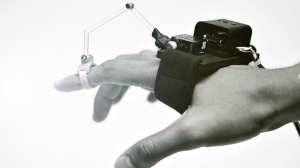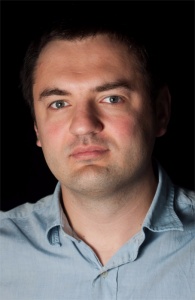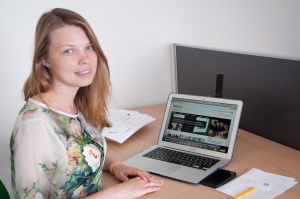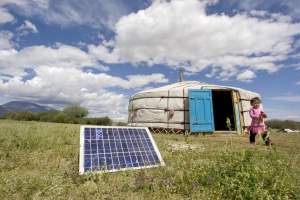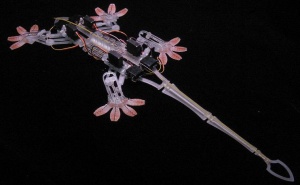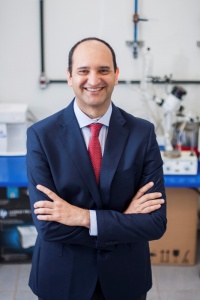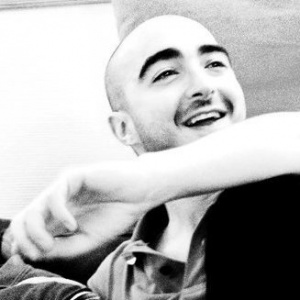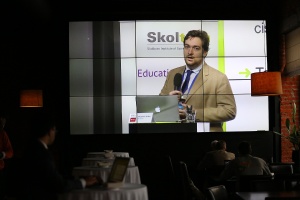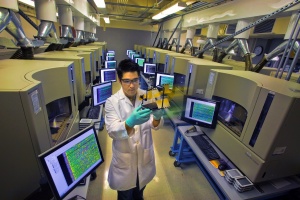
DNA analysis. Image courtesy of Berkeley Lab, Flickr
Genomics, proteomics, transcriptomics and metabolomics. These are some of the rising stars of biology studies, which are informally referred to as OMICS.
This summer Skoltech offers students and researchers a unique opportunity to get acquainted with and gain hands-on experience in cutting edge “OMICS Data Analysis and Medical Applications”.
The university’s Center for Data-Intensive Biomedicine and Biotechnology (CDIB) organizes in collaboration with Rusnano an intensive one-week educational module (July 20-26), jam-packed with presentations by some of the world’s leading scientists in the field. The program was developed in collaboration with top research institutes, including Institut Curie (France), University of Oxford (UK), Harvard Medical School (USA), and the Max Planck Institute for Computational Biology (Shanghai, China).
The program will provide an introduction to OMICS to the 20 competitively selected participants – Skoltech Ph.D. students, researchers from labs across Russia and employees of big companies. Instructors will review novel research methods, present practical applications in clinical diagnostics, therapy, pharmacy, and experimental biomedicine, and help attendees gain critical hands-on skills in computational biomedicine.
Program
Monday, July 20th
09:00 Registration
10:00 Introduction to the course
Tatiana Nikolenko, Andrey Zinovyev, Alexander Kanapin
11:00 Lecture: Omics data in precision oncology: past, present, and future
Emmanuel Barillot
13:00 Lunch
14:00 Lecture: Types of omics data and current omics technology overview
Alexander Kanapin
16:00 Omics data in virology
Manja Marz
18:00 Discussion
19:30 Welcome Party
Tuesday, July 21st
09:00 Lecture: Modern methods for visualization and exploratory analysis of omics data
Andrei Zinovyev
11:00 Lecture: High-throughput sequencing of the genome, epigenome and transcriptome for studying cancer
Valentina Boeva
13:00 Lunch
14:00 Lecture: Single cell omics data analysis and projects
Peter Kharchenko
16:00 Lecture: Modern computational infrastructure for omics data analysis
Lennart C. Karssen
18:00 Break
19:00 Practical session: High-throughput sequencing computational tools
Valentina Boeva + assistants
20:30 Dinner
Wednesday, July 22nd
09:00 Lecture: Machine learning for precision medicine and analysis of omics data (Part 1)
Felix Agakov
11:00 Lecture: Mobile genetic elements: postgenomic view
Alexander Kanapin
13:00 Lunch
14:00 Lecture: Cancer genome and approaches for understanding it
Tatiana Popova
16:00 Lecture: European genomics programs: objectives and challenges
Alexander Kanapin
18:00 Break
19:00 Practical session: Analyzing cancer genome
Tatiana Popova + assistants
20:30 Dinner
Thursday, July 23rd
09:00 Lecture: Machine learning for precision medicine and analysis of omics data (Part 2)
Felix Agakov
11:00 Lecture: Gut metagenomics and its application in medicine
Dmitry Ravcheev
13:00 Lunch
14:00 Lecture: Genomic instability and cancer prognosis, treatment and predisposition
Tatiana Popova
16:00 Lecture: Constructing, maintaining and using databases of molecular networks in medical applications
Maria Kondratova
18:00 Break
19:00 Practical session: Tools for dimension reduction and data visualization
Andrei Zinovyev + assistants
20:30 Dinner
Friday, July 24th
09:00 Lecture: How to decipher the biological and medical impact of somatic events in cancer?
Ekaterina Kotelnikova
11:00 Lecture: Mathematical modeling of biological processes using omics data
Andrei Zinovyev
13:00 Lunch
14:00 Lecture: Perspectives of precision medicine in Russia and worldwide
Evgeny Imyanitov
16:00 Lecture: Omics data for studying brain in health and disease
Philipp Khaitovich
18:00 Break
19:00 Practical session: Use of network-based methods for analysis of omics data
Maria Kondratova+assitants
20:30 Dinner
Saturday, July 25th
09:00 Lecture: The regulatory sequence level of protein-nucleic acids interaction: what we can and can’t do with sequence motif analysis of high-throughput omics data
Ivan Kulakovsky
11:00 Lecture: Discovery and analysis of eukaryotic enhancers using alternative genomic approaches
Dmitri Papatsenko
13:00 Lunch
14:00 Lecture: Algorithms of biological network analysis together with omics data
Mikhail Pyatnitskiy
16:00 Group discussion with lecturers: Q&A
18:00 Break
19:00 Remote lecture: Omics data for studying aging
Vadim Gladyshev
20:30 Dinner
Sunday, July 26th
09:00 Lecture: Evolutionary studies of human brain
Philipp Khaitovich
11:00 Lecture: Sniderome and similar projects and the future of personalized omics medicine
Andrei Zinovyev
13:00 Lunch
14:00 Summary and final discussion
18:00 Departure
